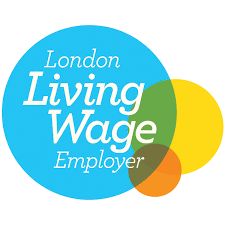When you are struggling with financial problems, it’s easy to fall into the trap of thinking you are just not good with money. But you can learn how to be better with money. And you can turn your finances round.
The key thing is to begin to recognise and avoid the main mistakes that people can make with money.
Let’s take a look at six of these now.
1. Not having a budget
In our recent article, How to Make a Budget and Stick to It we explained the importance of budgeting to your financial health. It is very easy to overspend regularly and not realise you are doing it. This can cause you to slide further into debt without understanding why.
Living beyond your means is one of the main mistakes that people make with money. Preparing a budget and then finding ways to stick to it will gradually help you get your finances back on track.
2. Depending on your overdraft
Another thing that many people do without thinking twice is using their overdraft every month. If your bank has given you an overdraft facility on your account, it is tempting to think of this as extra money. But it is not extra money: it is debt.
An overdraft is very helpful in case of an emergency or other unforeseen expense. If you use it in these kinds of circumstances and repay it as soon as you can, that is fine. Managing your overdraft responsibly in this way could even benefit your credit score (see item 4 below).
But it should only be used for those purposes, not as a regular extension to your income. Continually using an overdraft may incur bank charges so could cost you money. But even if you have a free overdraft you will be carrying debt. And if you are already up to your overdraft limit, and there is some kind of emergency, you could struggle to find the money that you need.
3. Paying too much interest on debt
If you have loans and debts it is worth checking how much interest you are paying on them. If you are paying a high rate of interest on one or more existing loans, it may be possible to take out a new loan at a lower rate of interest to repay your current loan(s) and consolidate your loan repayments into just one manageable payment.
If you have credit card debt, it is important to ensure that you are paying off as much as you can each month, not just the minimum payment. Otherwise you may actually only be paying off the interest that you owe on the balance, rather than the balance itself.
In our recent article New Year New Start, we discussed the concept of “snowballing” debts. Start with one debt, for example the one with the highest rate of interest, and do whatever you can to pay that debt off as soon as you can. Then use the money you were paying into that debt to increase your repayments to another debt, until that is cleared. Keep the impetus going and you will gradually start to see all your debts beginning to clear.
4. Not monitoring your credit score
It is important to keep track of your credit score. Your credit score is a 3 digit summary of your credit history, which is provided by one of the three main credit reporting agencies: Experian, Equifax or Transunion. Your credit score can affect various aspects of your life, from being accepted for financial products and services to buying or renting a home.
So it is important to know what your credit score is, and also to check your credit report to make sure there are no errors in it which could adversely affect your score. You can find out your score and view your report by contacting one of the above credit reporting agencies.
There are also things that you can do to improve your credit score. We covered these in our recent article How to Improve your Credit Score.
5. Not having any savings
If you do not have any savings, you are not alone. Recent data from the ONS (Office for National Statistics) found that during the Covid-19 pandemic an increasing proportion of people were unable to save for the year ahead; an estimated 38.4% by December 2020.
But as soon as you are able, try to start building up some savings. You should aim to save up enough money to cover all your expenses for between 3-6 months. This may seem like an impossible target right now, but the key thing is to start saving a small amount of money each month then gradually increase that once you are able to do so.
6. Not planning for the future
It is not surprising that many people give little thought to their long term financial future. Particularly over the past year, just surviving from day to day has been enough of a struggle without worrying about what might happen in years to come.
But the truth is that the sooner you start long term financial planning, the more opportunities are likely to be open to you. For example, if you are employed and have a workplace pension, you may be able to put more money into that pension each month. Not only would this increase the amount of your pension when the time comes but it could also reduce the amount of tax you pay now, because most workplace pensions deduct your pension contributions from your salary before you pay tax.
You may also have other financial goals, such as buying a home or supporting your children’s education or career plans. Take the first step towards these goals by looking into them in more detail, and planning potential ways to make them happen.
At Fair Finance we want to help you turn your finances round. Our registered charity, Fair Money Advice, provides debt advice to help individuals regain control of their money. We also believe that financial services should be inclusive and fair for everyone, and provide affordable personal loans - including bad credit personal loans - particularly to individuals with limited access to mainstream finance.
So if we can be of help to you then do get in touch with us. And remember to check back here soon for more financial and lifestyle tips from Fair Finance.




